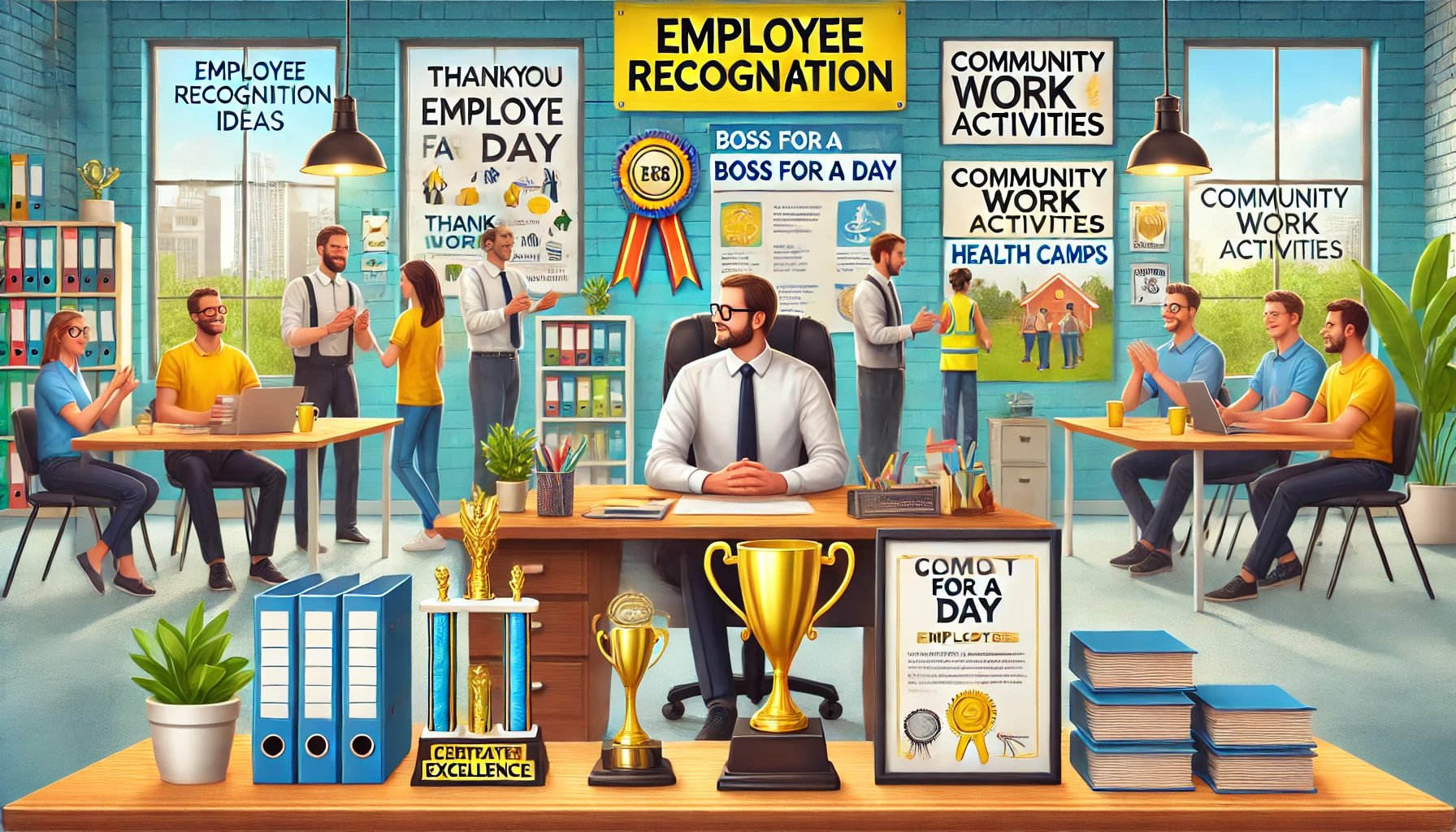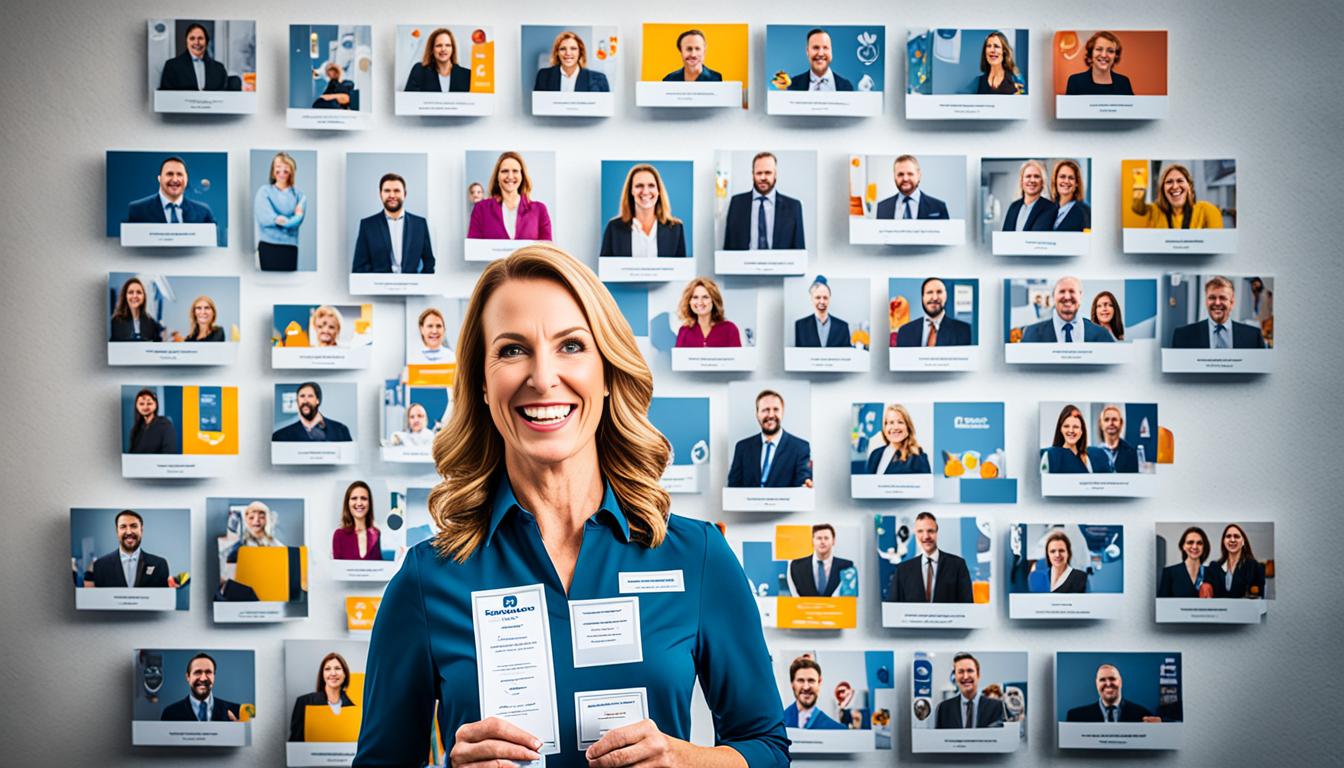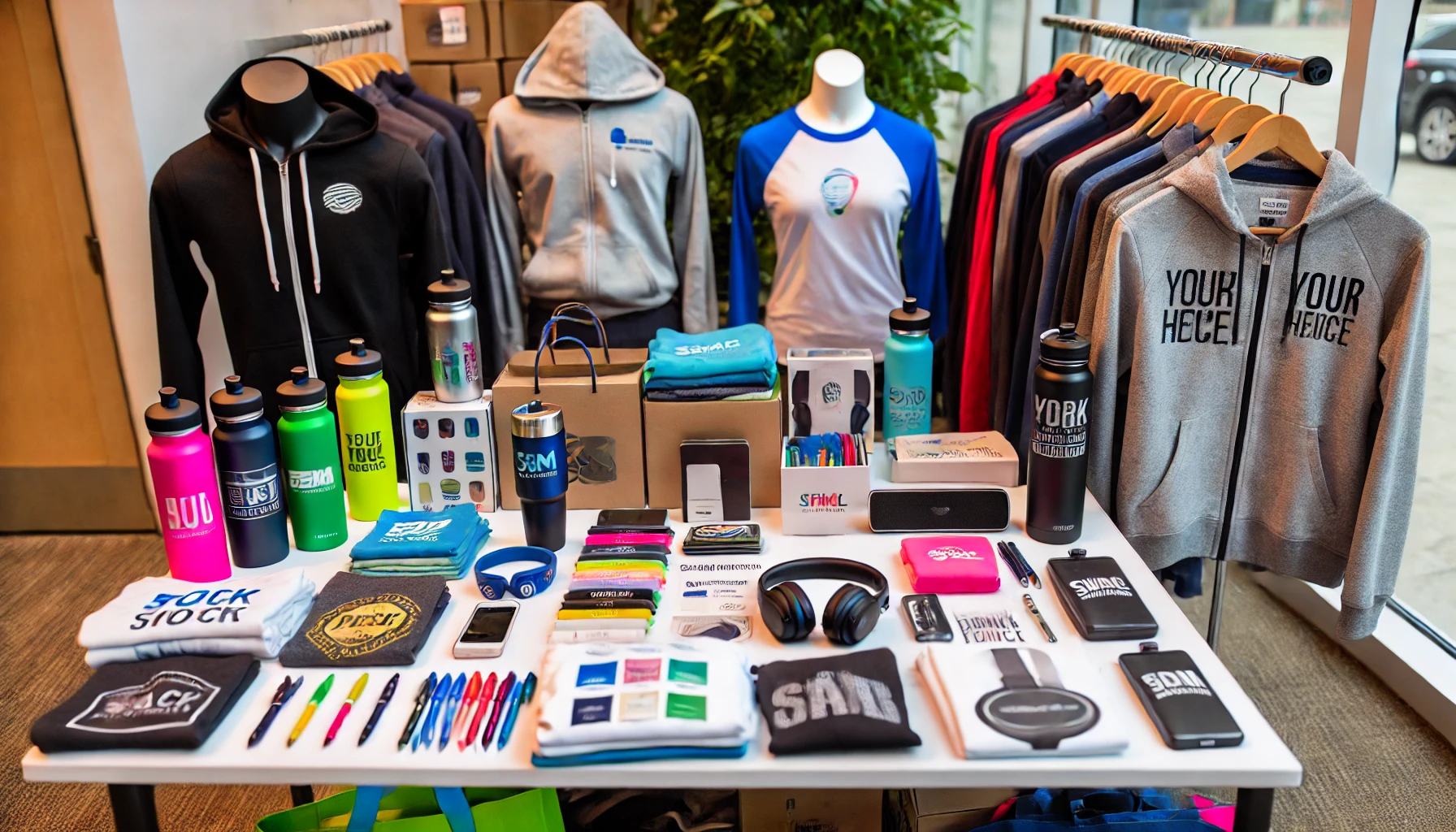Recognition in the workplace is an influential factor for employee satisfaction and motivation. The act of appreciating staff efforts not only fulfills their need for acknowledgment but also fosters a supportive company culture. Effective recognition should be regular, prompt, and specific to enhance its impact. From an array of tested concepts, various innovative and meaningful employee recognition ideas emerge as best practices to celebrate and motivate teams effectively within organizations.
Implementing effective employee recognition programs can significantly improve employee engagement and overall productivity. According to McKinsey research, companies with more than 30% women executives are positioned to outperform those with a percentage ranging from 10 to 30%. Companies like Infosys, TCS, and Accenture India have demonstrated their commitment to staff appreciation by covering vaccination costs for employees and their families.
Recognition initiatives, such as trophies, certificates of excellence, and thank you, can motivate employees and significantly increase job satisfaction. Peer-to-peer recognition within teams acts as a remarkable confidence booster. Companies can also boost productivity by providing facilities like free meals, laundry services, gyms, pools, and hospitals on office campuses.
Celebrating small achievements and organizing community work activities such as charity events and health camps can reinforce inclusivity in the workplace. To engage employees effectively, businesses can adopt diverse and creative recognition methods. For instance, recognizing top performers with a “Boss for a Day” experience can provide employees with valuable leadership perspectives and build a more connected organization.

Effective recognition programs reduce employee turnover by 31% and enhance the company’s overall productivity and operating margins. Incorporating elements that cater to both individual and team-based recognition can make these strategies more impactful. For more insights, check out these employee recognition ideas that help in morale boosting strategies and workplace celebrations.
Introduction to Employee Recognition
Employee recognition is a fundamental aspect of enhancing employee engagement and boosting employee happiness. Acknowledging an individual’s hard work and dedication is pivotal in making employees feel valued, leading to increased morale and productivity.
The Importance of Employee Recognition
Effective employee recognition results in employees being five times more connected to company culture and four times more engaged, according to Gallup. Moreover, companies with highly engaged employees are on average 23% more profitable, nearly 20% more productive, and have customers that are 10% more loyal. Recognizing contributions not only boosts employee happiness but also significantly impacts the organization’s overall performance. In fact, companies with a “recognition-rich culture” have 31% lower turnover rates compared to their peers.
Key Elements of Effective Recognition
Key elements of effective employee recognition include consistency, immediacy, and specificity to the actions, values, and preferences of employees. In 2021, an average of 84% of Bonusly users gave and/or received recognition every month, with 92% being peer-to-peer recognition. Companies that implement strategic recognition programs are 48% more likely to report high staff engagement, underlining the importance of personalized, motivating, and purposeful recognition strategies that align with the organization’s culture and goals. Recognizing contributions consistently and immediately ensures that efforts are acknowledged in a timely manner, further enhancing employee engagement.
Positive Feedback
Positive feedback stands as a cornerstone of effective employee recognition. It’s imperative to integrate this practice within the company’s ethos, helping to create a culture where employees feel valued and inspired. Timely appreciation and detailed feedback can significantly impact employee morale, motivation, and productivity.

Regular and Consistent Feedback
Providing regular and consistent feedback is key to nurturing a thriving workplace. According to Gallup, employees who receive frequent, meaningful feedback are 80% more likely to feel fully engaged. Rather than limiting feedback to annual reviews, consider incorporating monthly or even daily recognition initiatives. This frequent positive reinforcement tactic not only boosts morale but also reinforces the alignment with organizational values, fostering continuous improvement.
Immediate and Specific Acknowledgment
Effective feedback is most impactful when it is immediate and specific. Research from Gallup indicates that timely feedback profoundly enhances employee engagement and retention. By promptly acknowledging their achievements, you capitalize on the moment, making your appreciation more relevant and significant. For instance, peer-to-peer recognition has been noted to enhance team bonding and create a supportive work environment. Programs featuring timely appreciation help maintain this momentum and foster a positive company culture.
Specificity also plays a crucial role in delivering effective feedback. Highlighting precise actions or outcomes helps employees understand exactly what behaviors are appreciated, which fosters a sense of purpose and drives them to replicate those actions. Providing positive reinforcement tied to company goals further strengthens organizational culture and drives employee alignment with core values.
Value-Based Awards
Value-based awards are designed to honor employees who exemplify the company’s core values. These awards encourage staff achievements by integrating these ideals into their day-to-day workflow, reinforcing the mission and vision of the organization. Employee awards for embodying company values help create a culture where recognition programs actively engage and align employees with the broader goals of the company.
Recognizing employees with specific awards monthly or quarterly can be a consistent and effective way to highlight their commitment to company values. It fosters a sense of engagement and alignment, making employees feel appreciated and motivated. Immediate recognition following high-quality work submission is crucial, as it maintains the impact and meaning of the acknowledgment.
Personalizing these recognition programs by tailoring them to the individual’s actions and preferences can significantly increase their effectiveness. Such specific recognition is often more impactful than generic appreciation gestures. Regularly providing positive feedback, whether in person, via email, or through virtual platforms like Zoom, is a simple yet powerful tool in maintaining positive morale and encouraging staff achievements.

Moreover, incorporating value-based employee awards into the recognition programs of companies like The Very Group and Meijer demonstrates the potential for significant uplift in employee engagement and satisfaction. For instance, The Very Group’s Shine program shifted from providing just eight awards annually to 1000, resulting in over 355,000 recognitions to date. Such programs illustrate the transformative power of strategic employee awards in fostering a values-driven work environment. Implementing similar programs could lead to improved relationships, increased motivation, and a stronger alignment with company values.
Public Recognition at Meetings
Public accolades during team meetings serve as a robust tool for enhancing employee motivation and organizational connectivity. Recognizing employees in front of their peers garners a significant boost in morale and showcases achievements across the company.

Visibility and Motivation
Visibility plays a crucial role in employee motivation. Studies indicate that 58 percent of employees believe that their relationship with their manager would improve with more recognition. Additionally, 44 percent of employees value recognition from higher levels of leadership the most. Public accolades highlight individual contributions, offering a platform for employees to shine and feel valued. Such acknowledgments can lead to a more motivated workforce, as 85 percent of professionals prefer daily recognition for their efforts.
Building a Connected Organization
Public recognition at team meetings fosters organizational connectivity by reinforcing collective goals and achievements. This approach is vital, especially within hybrid or remote work settings. Recognition programs, like those implemented by General Motors, which had a 97 percent activation rate, can lead to significant engagement. Notably, GM received 5,000 positive comments about their employee recognition program. By publicly praising employees, companies can bolster a sense of unity and shared purpose.
Private Lunches with Leaders
Hosting private lunches between leaders and employees serves as a personalized way to provide recognition. This initiative not only facilitates meaningful one-on-one recognition but also deepens leadership engagement within the organization. A survey by Great Place to Work highlighted that 37% of respondents would be motivated to work more if they had personal recognition.
Private lunches allow for in-depth conversations about the employee’s contributions, offering a unique opportunity for leaders to express genuine gratitude. Employee appreciation events like these can significantly elevate an individual’s sense of value, reinforcing their connection to the company. Research has shown that 69% of workers would remain at their jobs if their employers offered more rewards and recognition, as reported by Oracle Netsuite.
Moreover, companies like Airbnb and Walt Disney World have long understood the power of personalized recognition. Airbnb, for instance, ranked 1st on Glassdoor’s list of “Best Workplaces in 2016,” offers special vacation bonuses to its employees, emphasizing the impact of non-cash rewards, which are preferred by 65-80% of people, according to the Incentive Marketing Association.
Implementing private lunches promotes leadership engagement while also giving employees an avenue for candid discussions. Such direct interaction is not only a form of one-on-one recognition but also a critical component of effective employee appreciation events. These small gestures can have a lasting impact, building a loyal and motivated workforce.
Creative Company Swag
Creative company swag remains a popular means of recognition, with items such as branded mugs, hoodies, and notebooks serving as tangible reminders of appreciation. These employee gifts not only instill a sense of company pride but can also align with the company’s values when sourced sustainably.
Popular Swag Items
T-shirts are the most popular swag option, with prices ranging from $12 to $20 per item. Hoodies and jackets are highly regarded, especially in colder months, providing a stylish option for employees. Hats offer a cost-effective and versatile branded merchandise choice, with plenty of customization options available. Tumblers and reusable water bottles are recommended for staying organized and hydrated. Work essentials swag bags containing items like pens, post-it notes, and notebooks create a useful and attractive gift package. Branded headphones and custom Bluetooth speakers are cited as potential popular choices, promoting creativity and productivity.

Sustainable and Ethical Products
Offering sustainable and ethical swag reflects positively on a company’s image, reinforcing commitment to social responsibility. Self-care items such as mugs, pens, and keychains demonstrate the company’s care for employees’ well-being. Winter swag, including hats, scarves, gloves, and beanies, enhances comfort during cold weather. Notebooks, available in various types like hardcover, softcover, or spiral-bound, offer practical and customizable options. Emphasizing ethical swag in your employee recognition strategy not only enhances the perceived value of the gifts but also builds company pride among employees.
Experiential Rewards
Experiential rewards offer employees unique and memorable opportunities as a form of recognition. Activities like skydiving, singing lessons, or spa days can be tailored to individual preferences, making these unique employee rewards a powerful motivational tool.
Evidence suggests that up to two-thirds of workers leave their jobs if they don’t feel appreciated. Effective recognition programs, particularly those incorporating experiential recognition, can reduce employee turnover by 31% compared to ineffective programs. Companies that recognize their employees are reported to be 40% more productive than others, highlighting the importance of well-thought-out rewards programs.
57% of younger Americans prioritize enjoyment and making a difference over monetary benefits or skill development. This demographic shift underscores the value of experiential recognition. By incorporating team experiences into recognition programs, employers can foster camaraderie and enhance overall team morale.
The Cheesecake Factory, consistently voted among the 100 best companies to work for by Fortune Magazine, exemplifies the benefits of a robust recognition strategy. Engaging in small acts of kindness like team luncheons or providing premium coffee can significantly enhance employee appreciation. Experiential rewards, found to have nearly four times more impact on the employee experience than other rewards, can play a crucial role in such strategies.
Providing personalized experiential rewards can cater to individual interests and preferences, enhancing the recognition experience. Studies show that 65% of employees prefer non-cash incentives over traditional monetary rewards, while 47% desire more personalized forms of recognition. With 97% of reward programs focusing only on transactional rewards, introducing relational rewards through unique employee rewards and team experiences can set a company apart.
Engagement with shared experiences, such as group activities or adventures, not only strengthens team bonds but also promotes a more cohesive work environment. By fostering a culture of appreciation and well-being, experiential rewards contribute significantly to employees’ work-life balance and overall job satisfaction.
Catered Meals for Teams
Company sponsored lunches are an effective way to enhance team bonding and recognize group accomplishments. In a recent ezCater survey, 67% of workers stated they feel appreciated when their company provides a catered meal. These meals do more than just feed employees; they contribute to a happier workplace and build goodwill among staff members.
Offering catered meals can significantly boost employee morale and productivity. According to an ezCater survey of 1,000 employees, 44% ranked free lunch as one of the top two perks at work. This aligns with findings from The Lunch Report, which showed that the majority of surveyed employees considered free, catered lunches a significant incentive for working in the office.

Whether through family-style serving or buffet options that cater to varying tastes and dietary restrictions, corporate caterers in cities like New York, Los Angeles, and San Francisco offer diverse menus. Options range from sandwiches to cuisine-specific selections such as Mexican, Asian rice bowls, and Mediterranean bowls. Including seasonal soups or creative salads can elevate the meal experience further.
Group appreciation events can take many forms, including bento boxes and individually packaged snack lunches featuring items like yogurts, fresh fruit, and finger sandwiches, which can boost employee energy. Plated meals or fun food experiences, like a s’mores bar or an ice cream cart, can transform a regular lunch into a celebratory occasion.
Moreover, a significant number of employees plan their on-site workdays based on the availability of catered lunches. This shows the powerful impact of such initiatives on daily work habits. Celebrating employees with food-based gestures is a cost-effective way to show appreciation and communicate the value of their work.
For more ideas on enhancing team bonding through group meals, check out these employee appreciation ideas. Additionally, explore various company lunch catering ideas to keep your team excited about coming to work. Incorporating diverse flavors like Philly cheesesteak, Kansas City BBQ, or customizable sushi rolls can make every meal a memorable event.
Ultimately, catered meals can serve as a cornerstone for fostering better collaboration and team appreciation within your organization, making each group appreciation event an anticipated event.
Conclusion
Implementing recognition strategies is not just an added bonus, but a crucial component for cultivating an appreciative culture within any organization. According to a survey by Great Place to Work on O.C. Tanner, 37% of respondents stated that personal recognition motivates them to produce better work more regularly. This underscores the significant impact thoughtful recognition can have on employee performance and overall morale.
Gallup’s research shows that only 33% of employees felt their efforts were appreciated in the past seven days, highlighting the critical need for regular acknowledgment. Recognition programs, whether they involve public praise, private lunches with leaders, or creative company swag, must be personalized and timely to be most effective. Studies by Deloitte reveal that businesses with highly effective recognition programs experienced 31% lower voluntary turnover rates, which significantly contributes to retention and satisfaction.
Finally, by integrating a variety of employee recognition ideas, such as awards, fresh air breaks, and celebratory events, organizations can create a robust recognition culture that supports employee development and engagement. Regularly demonstrating appreciation for hard work enhances team spirit and aligns the workforce with the company’s mission and values. In fostering a culture of appreciation, businesses not only boost morale but also drive long-term success and employee satisfaction.
FAQ
Why is employee recognition important in the workplace?
Recognition in the workplace is crucial because it boosts employee engagement, enhances satisfaction, and increases motivation by making employees feel valued. Acknowledging staff efforts fosters a supportive company culture, leading to higher morale and productivity.
What are some key elements of effective employee recognition?
Effective recognition should be consistent, immediate, and specific. Regularly appreciating employees, promptly following positive actions, and being specific to their contributions ensures that the recognition is impactful and resonates with the recipients.
How often should positive feedback be given to employees?
Positive feedback should be a regular and consistent part of the company’s culture. Ideally, employees should receive acknowledgment at least quarterly, rather than just during annual reviews, to maintain motivation and engagement.
What are value-based awards, and how do they benefit the organization?
Value-based awards recognize employees who embody the company’s core values. These awards encourage staff to integrate these values into their daily work, reinforcing the organization’s mission and strengthening the company culture.
How does public recognition during company meetings benefit employees?
Public recognition during company meetings enhances employees’ visibility and motivation. It showcases individual achievements to the broader company, reinforcing collective goals and fostering a connected organization, especially in hybrid or remote work environments.
Why are private lunches with leaders an effective form of employee recognition?
Private lunches with leaders provide personalized recognition through meaningful one-on-one interactions. These engagements allow leaders to express genuine gratitude and discuss employees’ contributions in-depth, making employees feel valued and appreciated.
What are some popular creative company swag items for employee recognition?
Popular swag items include branded mugs, hoodies, notebooks, and other merchandise. Focusing on sustainably and ethically produced products can enhance the overall value of these gifts, aligning with a responsible corporate image.
How do experiential rewards work as a form of recognition?
Experiential rewards offer employees unique and memorable opportunities, such as skydiving, singing lessons, or relaxing experiences. These personalized rewards show a deep investment in employees’ satisfaction, providing a break from routine and serving as a powerful motivational tool.
What benefits do catered meals for teams provide in terms of employee recognition?
Catered meals for teams act as a group recognition strategy, creating a shared celebratory experience. Specialized food events emphasize group achievements and foster team bonding, contributing to a cohesive work environment.
What overall impact do diverse and thoughtful employee recognition ideas have on an organization?
Implementing diverse and thoughtful recognition strategies significantly benefits employee satisfaction and retention. Personalized, specific, and well-timed recognition fosters a culture of appreciation, ensuring a happier, more productive workforce aligned with the organization’s mission and values.

More Posts
11 Time Management Hacks for Business Travel
Seasoned business travelers know how crucial time management is. Using time-saving strategies can save you time and money. A study found that these strategies cut down wasted time by 40% on trips. Also, those who...
10 Benefits of Using a Weekly Habit Tracker for Personal Development
Weekly, at least one habit tracking changes daily actions into intentional habits. This helps with personal growth and development. By recording and reviewing their daily habits, people can gain valuable insights into their...
Mastering Focus- Avoiding Distractions and Doing Deep Work Effectively
Deep Work helps fight off procrastination, especially the chronic kind that students face. Nearly 60 emails show students struggling with deep procrastination. With blog comments added, the number of messages goes into the...
10 Work from Home Tips that Work Like a Charm for Newbies
The growing popularity of working from home is changing the corporate landscape. Working remotely from home is changing the traditional ways global workspaces used to operate as the world is transitioning into new...